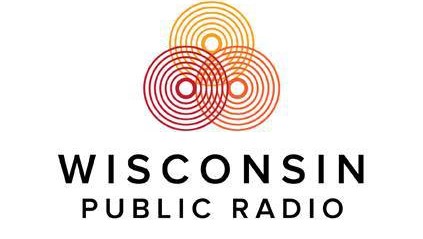Wisconsin Public Radio has announced a major revamp that will include program changes on every station, the merger of existing long-form news programming onto one network, and the return of Classical music to Milwaukee.
The network announced that the changes will take place on May 20 with the launch of two new networks, WPR News and WPR Music, to replace the existing two networks, NPR News & Music and The Ideas Network. Some current News & Music stations will switch to WPR News, while some Ideas Network stations will switch to WPR Music; every station will see a major change of some sort.
WPR’s current setup dates back to the early 1990s when the service split the original “state FM network” into the News & Music network and the Ideas Network, with the Ideas Network also running on WPR’s two AM signals.
Currently, News & Music runs a legacy public radio format mixing NPR’s “Morning Edition” and “All Things Considered” with Classical music. The Ideas Network offers alternate News and Talk programming. The setup has allowed WPR to present two different long-form news options during morning and afternoon drive.
The Ideas Network’s format originally consisted of live call-in talk programs all day, but the number of hours of state-originated content has been reduced over the years and drive-time shows have moved to a more magazine-style presentation.
Both networks have expanded coverage over the decades as WPR added additional signals. Though the network now has more than two signals in some areas, including three FM services in Madison and Wausau, the new plan continues a dual-network service, meaning some areas will have two transmitters carrying the same programming.
Under the new lineup, WPR News will run “Morning Edition” and “All Things Considered” along with several programs moving over from the Ideas Network. The Ideas Network’s existing morning and afternoon drive programs will be discontinued, with hosts moving to a new hourlong “Wisconsin Today” program at 9 a.m. on WPR News.
Meanwhile, WPR Music will expand Classical music offerings to 24 hours per day, with Jazz, World, and Folk programming continuing on weekends. The network will continue to air newscasts from NPR and WPR. The launch was foreshadowed earlier this year when WPR posted a job for a Milwaukee-based afternoon Classical host.
Besides the elimination of the Ideas Network’s current drive-time shows, BBC’s “Newshour” and CBC’s “As It Happens” will be among the shows dropped as WPR consolidates long-form news programming onto one network.
The network also announced it is dropping volunteer-hosted late-evening music shows in Green Bay and regional weekly public affairs programming in La Crosse, Superior, and Wausau, with current regional hosts instead providing shorter-form reports to air during “Morning Edition.”
No network employees will lose their jobs.
The changes will come after Jacobs Media Strategies conducted research for WPR through surveys and focus groups.
“We are constantly evaluating our service to the people of Wisconsin and, like others in public media, WPR saw changes in broadcast and digital audience behavior during and after the pandemic,” WPR Director Sarah Ashworth said in a news release. “No other medium is as accessible and affordable as radio and we want to make sure the news, music, information and entertainment Wisconsinites rely on is available to more people, in more places, for decades to come. WPR News and WPR Music will help make that possible.”
With the changes, WPR announced that WHAD/90.7 (Delafield) will switch from the Ideas Network to the new WPR Music service, bringing Classical music back to Milwaukee for the first time since a commercial broadcaster dropped the format more than 15 years ago.
Elsewhere, the realignment means an AM-FM simulcast in Madison, Classical music on AM in central Wisconsin, long-form NPR News programs on two larger signals in western Wisconsin, and an upgrade for a Classical music service in Superior that already competes with Minnesota Public Radio.
WPR’s coverage varies across the state, with some areas receiving only one strong FM signal and others receiving multiple stations. It also faces a variety of different market conditions, with other stations carrying NPR programming in Milwaukee, Rhinelander, Hayward, and areas along the Minnesota border.
Here is a city-by-city look at how things shape up:
Milwaukee: WPR’s only station reaching the main Milwaukee metro area is WHAD/90.7 (Delafield), while UW-Milwaukee operates NPR News/Talk outlet WUWM/89.7. (The Board of Regents holds the licenses for WUWM and several WPR stations, but the two radio services operate separately.) WHAD will change to Classical, leaving WUWM as the sole public News/Talk outlet in the market. WGTD/91.1 (Kenosha), which does not reach Milwaukee but overlaps with WHAD’s larger coverage area, will switch from News & Music to WPR News. WGTD, which is owned by Gateway Technical College, noted that its local programs will continue and it will also launch an HD3 signal carrying Classical music.
Madison: WPR is the only NPR station in its home market. Both WHA/970 and WERN/88.7 will carry the WPR News service, while WPR Music will be carried on two FM translators. Outlying areas may also be able to receive WPR Music from WHAD or WHHI/91.3 (Highland).
Wausau/Central Wisconsin: WPR has one large FM signal, WHRM/90.9 (Wausau), one legacy AM signal, WLBL/930 (Auburndale), and several smaller FM signals. WHRM currently carries News & Music and will switch to WPR News. The smaller FM signals and WLBL will carry WPR Music. Regionally, NPR is also heard on locally-owned station WXPR/91.7 (Rhinelander), which operates WXPW/91.9 (Wausau); WXPW is in a rare shared-time operation with WPR’s WLBL-FM/91.9 (Wausau), one of the signals which will carry WPR Music.
Green Bay: WPR is the only NPR station in the region. WPNE/89.3, the slightly larger of WPR’s two signals, will switch from News & Music to WPR News. WPR Music will be carried on WHID/88.1.
La Crosse: The larger signal of WHLA/90.3 will switch from the Ideas Network to WPR News, while WLSU/88.9 will switch from News & Music to WPR Music. The two stations compete with smaller Minnesota Public Radio signals licensed to nearby La Crescent, MN, carrying similar programming.
Eau Claire-Menomonie: The region’s largest WPR signal, WHWC/88.3 (Menomonie), will switch from the Ideas Network to WPR News. WUEC/89.7 (Eau Claire) and WVSS/90.7 (Menomonie) will switch from News & Music to WPR Music.
Superior: WPR’s two networks are among six major public radio services heard in the Twin Ports, competing with MPR’s News, Classical, and Adult Alternative networks and local Adult Alternative outlet “The North” (WDSE-FM/103.3 Duluth). WPR’s larger signal in Superior, KUWS/91.3, will switch from the Ideas Network to WPR Music; the station also runs student-produced Jazz and Alternative programming in the evening under a long-running agreement with UW-Superior. WSSU/88.5 (Superior) and WHSA/89.9 (Brule) will switch from News & Music to WPR News.
See WPR’s full announcement for a complete listing of all of the stations carrying each service, and complete program schedules.

